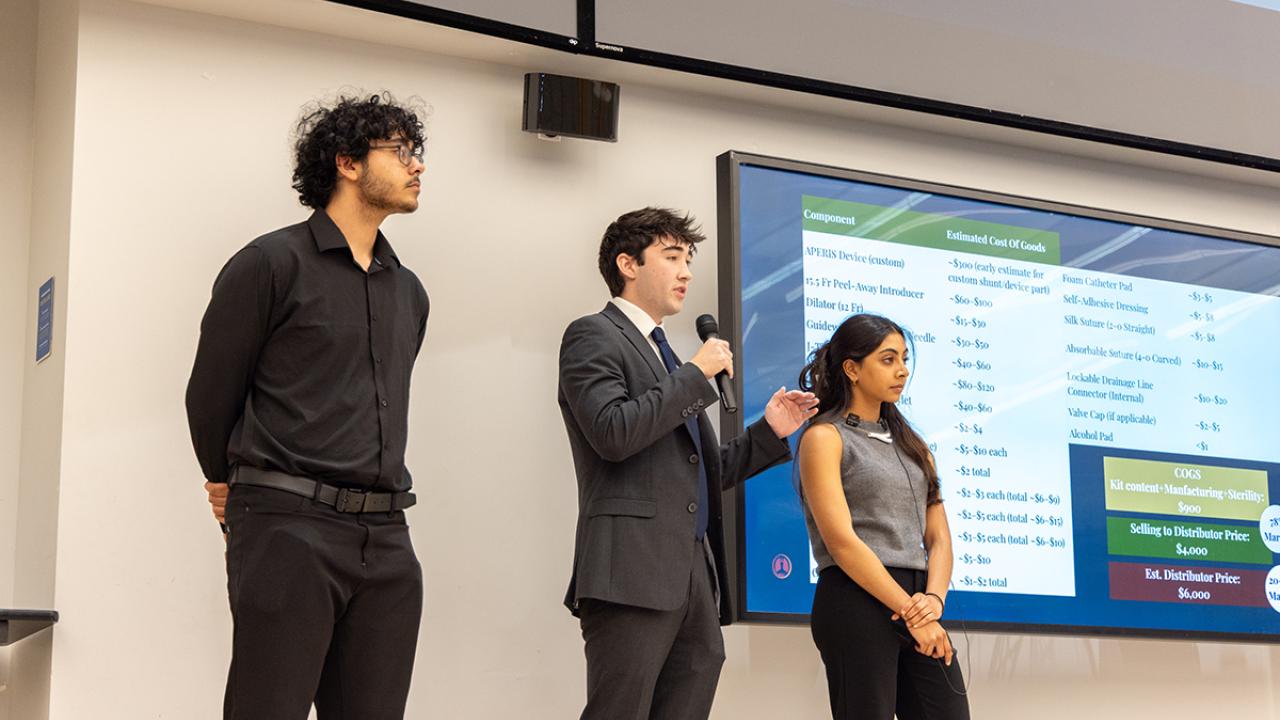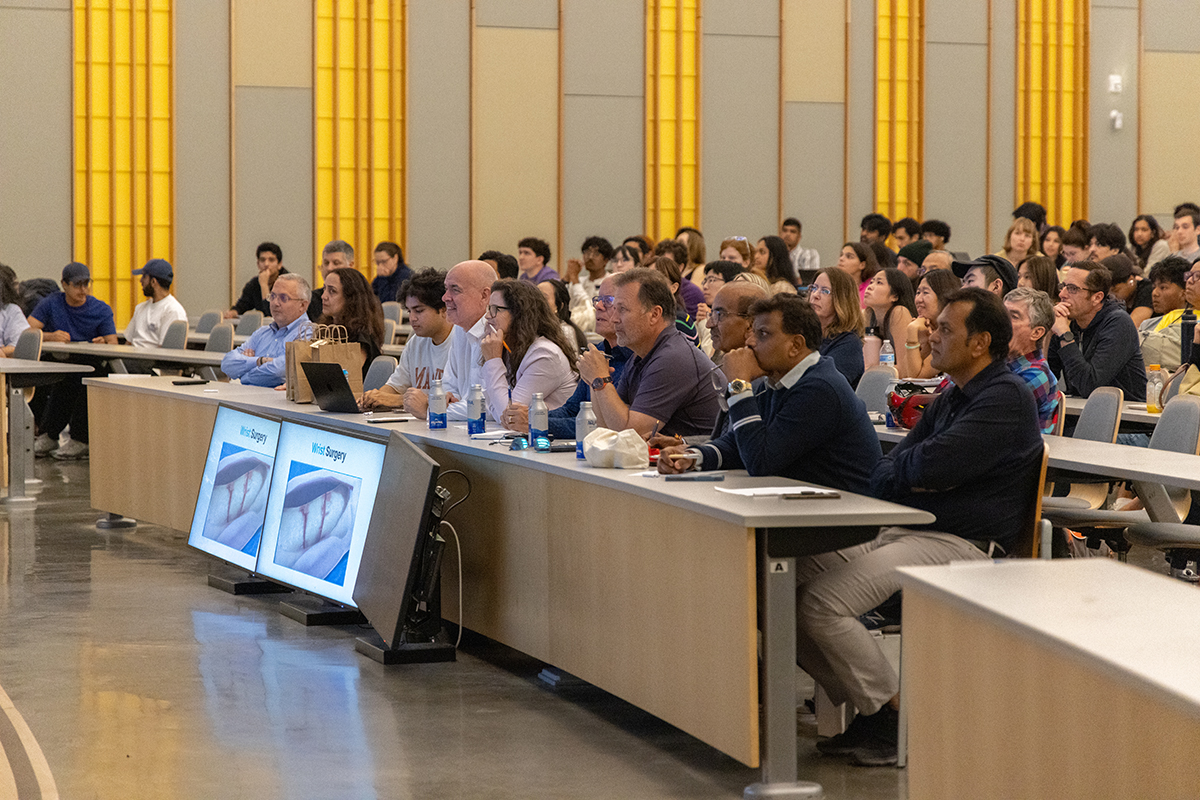
Student Startup Teams Pitch Bold New Ideas at PLASMA Demo Day
A dating-esque app that matches students with tutors. An AI veterinary assistant that cuts down on paperwork. A real-time, in-ear sports coach. An implant that automatically drains fluid into the bloodstream.
These are a handful of the 13 start-up ideas that were pitched at PLASMA Demo Day, the culminating experience of PLASMA, a 12-week early-stage cohort accelerator program through the Student Startup Center at the University of California, Davis.
"These are the best student teams we can find across campus, and Demo Day is their coming-out party," said Aaron Anderson, director of the Student Startup Center, at the event. "It's a chance to show what they've been working on, to pitch their companies, to explain why their business matters, the problems they're solving and what they're doing to solve it."

The teams pitched their ideas to a panel of judges and more than 700 attendees in California Hall. Six teams were awarded for their efforts, earning a total of $31,000 in grants.
The startup MCMetrics was deemed to have "Most Traction" due to the company's accomplishments in categories like revenues earned and product development, while APERIS was named "Most Investable" by the Demo Day judges, who selected the team for their product's high chance of great investment returns. These distinctions earned both teams $7,500 in funding.
MCMetrics, designed by first-year computer science student Nils Fleig, is a software dashboard that offers analytics tools to people in the gaming industry, tracking key metrics like player count, revenue, joins and player life cycle. It stems from his personal experience of building a viral video game in Minecraft when he was 14.
With APERIS, fourth-year biomedical engineering student Arushi Patel and her team aim to make waves in the healthcare space. APERIS is an implantable device that drains excess fluid between the lungs and the chest wall. Patients with this issue, called recurrent pleural effusion, suffer from shortness of breath and chronic chest pain, and often must endure recurring procedures, as well as external equipment on their person. APERIS, on the other hand, would require one procedure to insert a small, internal implant.
"Being named 'Most Investable' means a great deal to us," said Patel. "It validates our vision and gives us the flexibility to explore more directions for APERIS. The PLASMA program has been instrumental in helping APERIS gain traction, and the funding we received will directly support our mission of improving the lives of patients with recurrent pleural effusions."
The Karim Abou Najm Research and Innovation Memorial, or KARIM, Award and $7,500 was bestowed upon NEXTfuge, a portable diagnostic tool that uses a disposable microfluidic disc and specialized software to deliver results from a drop of blood in 15 minutes.
The KARIM Award was established in honor of Karim Abou Najm, who established his company, Cornische, and participated in PLASMA in 2022 utilizes university research and mentorship resources through meaningful relationships with faculty.

"We feel completely touched to have won the Karim Abou Najm award, and we are honored to exemplify what Karim accomplished and stood for," said Annalee Maayah, NEXTfuge's co-founder and a biomedical engineering major. "Our time in PLASMA has been a core stepping stone in founding our company, and we are grateful to have been given this opportunity [through the Student Startup Center] and the award from the Abou Najm family."
Kingsmen Health took the Mentor's Choice award and $5,000 for their team's mobile app, called BeaGL, that uses AI and machine learning to alert people living with Type 1 diabetes to their blood sugar lows and highs 15 minutes in advance.
The Audience Choice award and $2,500 went to WeedR, a scanner and detection software that identifies invasive or illegal plant species to help stop the spread of these species and prevent wildfires.
Finally, Access Kitchen received a $1,000 award sponsored by the ASUCD Innovation and Research Lab, a student-run software and research agency on campus. Access Kitchen makes accessible and adaptable kitchen utensils for people with disabilities, featuring a bowl, mug and plate that magnetize to a mat for stability and are also microwavable and dishwasher safe.
While not all the teams received monetary funding from PLASMA Demo Day, the start-ups that go through the program have a leg up on creating momentum for their company. In the past year, PLASMA alums have been admitted to prestigious accelerator programs like Y Combinator, generated significant revenues and raised investment funds, and came in first and second place at the Sacramento Kings Capitalize technology startup competition.
